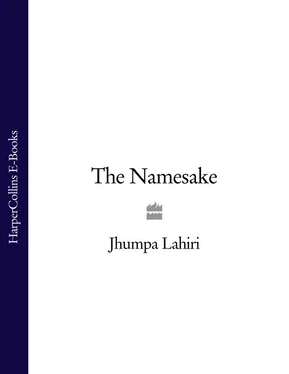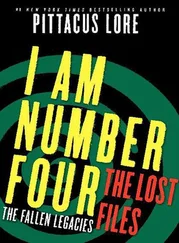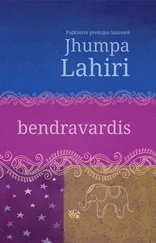In the evenings Gogol and his father eat together, alone, a week’s worth of chicken curry and rice, which his father cooks in two battered Dutch ovens every Sunday. As the food reheats, his father tells Gogol to shut the bedroom door because his mother cannot tolerate the smell. It is odd to see his father presiding in the kitchen, standing in his mother’s place at the stove. When they sit down at the table, the sound of his parents’ conversation is missing, as is the sound of the television in the living room, playing the news. His father eats with his head bent over his plate, flipping through the latest issue of Time , occasionally glancing at Gogol to make sure he is eating as well. Though his father remembers to mix up the rice and curry for Gogol beforehand, he doesn’t bother to shape it into individual balls the way his mother does, lining them around his plate like the numbers on a clockface. Gogol has already been taught to eat on his own with his fingers, not to let the food stain the skin of his palm. He has learned to suck the marrow from lamb, to extract the bones from fish. But without his mother at the table he does not feel like eating. He keeps wishing, every evening, that she would emerge from the bedroom and sit between him and his father, filling the air with her sari and cardigan smell. He grows bored of eating the same thing day after day, and one evening he discreetly pushes the remaining food to the side. With his index finger, in the traces of leftover sauce, he begins to draw on his plate. He plays tic-tac-toe.
“Finish,” his father says, glancing up from his magazine. “Don’t play with food that way.”
“I’m full, Baba.”
“There’s still some food on your plate.”
“Baba, I can’t.”
His father’s plate is polished clean, the chicken bones denuded of cartilage and chewed to a pinkish pulp, the bay leaf and cinnamon stick as good as new. Ashoke shakes his head at Gogol, disapproving, unyielding. Each day Ashoke is pained by the half-eaten sandwiches people toss into garbage cans on campus, apples abandoned after one or two bites. “Finish it, Gogol. At your age I ate tin.”
Because his mother tends to vomit the moment she finds herself in a moving car, she is unable to accompany her husband to take Gogol, in September of 1973, to his first day of kindergarten at the town’s public elementary school. By the time Gogol starts, it is already the second week of the school year. But for the past week, Gogol has been in bed, just like his mother, listless, without appetite, claiming to have a stomachache, even vomiting one day into his mother’s pink wastepaper basket. He doesn’t want to go to kindergarten. He doesn’t want to wear the new clothes his mother has bought him from Sears, hanging on a knob of his dresser, or carry his Charlie Brown lunch box, or board the yellow school bus that stops at the end of Pemberton Road. The school, unlike the nursery school, is several miles from the house, several miles from the university. On numerous occasions he’s been driven to see the building, a low, long, brick structure with a perfectly flat roof and a flag that flaps at the top of a tall white pole planted on the lawn.
There is a reason Gogol doesn’t want to go to kindergarten. His parents have told him that at school, instead of being called Gogol, he will be called by a new name, a good name, which his parents have finally decided on, just in time for him to begin his formal education. The name, Nikhil, is artfully connected to the old. Not only is it a perfectly respectable Bengali good name, meaning “he who is entire, encompassing all,” but it also bears a satisfying resemblance to Nikolai, the first name of the Russian Gogol. Ashoke had thought of it recently, staring mindlessly at the Gogol spines in the library, and he had rushed back to the house to ask Ashima her opinion. He pointed out that it was relatively easy to pronounce, though there was the danger that Americans, obsessed with abbreviation, would truncate it to Nick. She told him she liked it well enough, though later, alone, she’d wept, thinking of her grandmother, who had died earlier in the year, and of the letter, forever hovering somewhere between India and America, containing the good name she’d chosen for Gogol. Ashima still dreams of the letter at times, discovering it after all these years in the mailbox on Pemberton Road, opening it up only to find it blank.
But Gogol doesn’t want a new name. He can’t understand why he has to answer to anything else. “Why do I have to have a new name?” he asks his parents, tears springing to his eyes. It would be one thing if his parents were to call him Nikhil, too. But they tell him that the new name will be used only by the teachers and children at school. He is afraid to be Nikhil, someone he doesn’t know. Who doesn’t know him. His parents tell him that they each have two names, too, as do all their Bengali friends in America, and all their relatives in Calcutta. It’s a part of growing up, they tell him, part of being a Bengali. They write it for him on a sheet of paper, ask him to copy it over ten times. “Don’t worry,” his father says. “To me and your mother, you will never be anyone but Gogol.”
At school, Ashoke and Gogol are greeted by the secretary, Mrs. McNab, who asks Ashoke to fill out a registration form. He provides a copy of Gogol’s birth certificate and immunization record, which Mrs. McNab puts in a folder along with the registration. “This way,” Mrs. McNab says, leading them to the principal’s office. CANDACE LAPIDUS, the name on the door says. Mrs. Lapidus assures Ashoke that missing the first week of kindergarten is not a problem, that things have yet to settle down. Mrs. Lapidus is a tall, slender woman with short white-blond hair. She wears frosted blue eye shadow and a lemon yellow suit. She shakes Ashoke’s hand and tells him that there are two other Indian children at the school, Jayadev Modi in the third grade and Rekha Saxena in fifth. Perhaps the Gangulis know them? Ashoke tells Mrs. Lapidus that they do not. She looks at the registration form and smiles kindly at the boy, who is clutching his father’s hand. Gogol is dressed in powder blue pants, red and white canvas sneakers, a striped turtleneck top.
“Welcome to elementary school, Nikhil. I am your principal, Mrs. Lapidus.”
Gogol looks down at his sneakers. The way the principal pronounces his new name is different from the way his parents say it, the second part of it longer, sounding like “heel.”
She bends down so that her face is level with his, and extends a hand to his shoulder. “Can you tell me how old you are, Nikhil?”
When the question is repeated and there is still no response, Mrs. Lapidus asks, “Mr. Ganguli, does Nikhil follow English?”
“Of course he follows,” Ashoke says. “My son is perfectly bilingual.”
In order to prove that Gogol knows English, Ashoke does something he has never done before, and addresses his son in careful, accented English. “Go on, Gogol,” he says, patting him on the head. “Tell Mrs. Lapidus how old you are.”
“What was that?” Mrs. Lapidus says.
“I beg your pardon, madam?”
“That name you called him. Something with a G .”
“Oh that, that is what we call him at home only. But his good name should be—is”—he nods his head firmly—“Nikhil.”
Mrs. Lapidus frowns. “I’m afraid I don’t understand. Good name?”
“Yes.”
Mrs. Lapidus studies the registration form. She has not had to go through this confusion with the other two Indian children. She opens up the folder and examines the immunization record, the birth certificate. “There seems to be some confusion, Mr. Ganguli,” she says. “According to these documents, your son’s legal name is Gogol.”
Читать дальше












